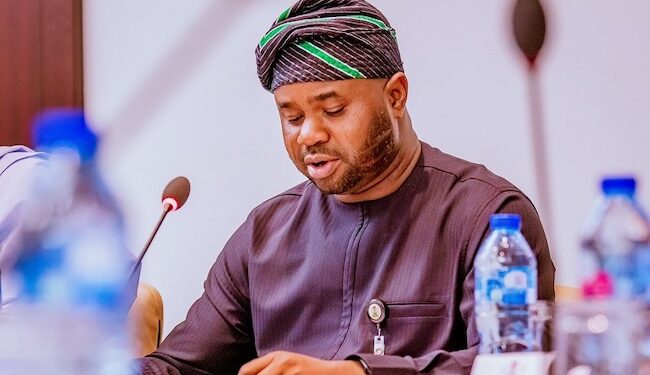The Executive Chairman of the Federal Inland Revenue Service (FIRS), Mr. Zacch Adedeji, has called for the adoption of transparent, innovative, and inclusive strategies to drive revenue growth and bridge Nigeria’s infrastructure deficit.
Speaking at the 2nd Annual Lecture of NPO Reports in Abuja on Tuesday, themed “Revenue Generation, Infrastructure Progress: Options in a Challenged Economy,” Adedeji emphasized the critical role of collaboration between public and private sectors in overcoming the challenges of a constrained economy.
“Revenue generation and infrastructure development are crucial to overcoming the challenges of a constrained economy,” he stated. “Transparent, inclusive, and efficient strategies will unlock economic potential, foster innovation, and improve public services. Collaborative efforts, supported by sustainable practices and innovative technologies, will pave the way for resilient and equitable growth.”
Adedeji, represented by the FIRS Director of Inter-governmental Affairs, Dr. Umar Ahmed, outlined several key recommendations:
- Improving Tax Administration: Enhancing efficiency, reducing corruption, and increasing transparency in tax collection processes.
- Strengthening Public-Private Partnerships (PPPs): Establishing clear frameworks and promoting innovative financing to attract private investment in infrastructure projects.
- Adopting Digital Solutions: Leveraging technology for revenue collection and infrastructure management to boost efficiency and accountability.
- Prioritizing High-Impact Projects: Focusing on initiatives that deliver maximum economic and social returns, such as the Lagos-Calabar highway, which supports critical sectors like transportation, energy, and water supply.
He also highlighted the Federal Government’s “Renewed Hope Infrastructure Development Fund,” a key initiative under the Renewed Hope Agenda aimed at generating revenue to enhance infrastructure nationwide.
In his address, the publisher of NPO Reports, Semiu Okanlawon, pointed out the challenges the government faces in balancing revenue generation with economic realities. He stressed the need for innovative solutions to raise funds without overburdening already strained taxpayers.
“You have a government determined to change the course, but where is the money coming from? How do you tax overburdened citizens facing harsh economic realities? These are the dilemmas we must address,” Okanlawon said.
Adedeji concluded by emphasizing that adopting efficient and innovative strategies is essential to sustain economic growth, improve public services, and enhance living standards amidst economic uncertainties.
























